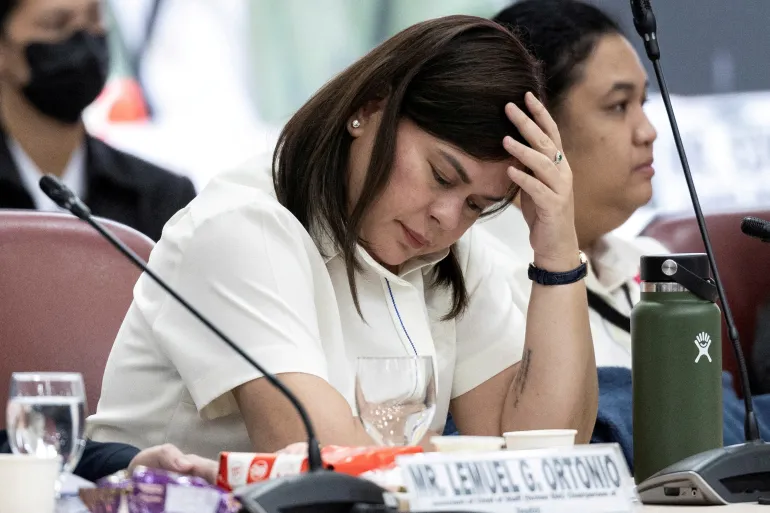Written by Luis Gabriel R. Santiago | August 15, 2025
SC rules Sara impeachment case unconstitutional, Senate votes to archive
WITH the impeachment of Vice President Sara Duterte ruled out as unconstitutional in a unanimous vote by the Supreme Court (SC) last July 25, the proceedings of the case have come to a staggering halt. This decision, however, neither validated nor dismissed any allegations that formed the basis of the impeachment complaint in the first place.
Tracing back to December of last year, three complaints were filed against Duterte, with accusations ranging from extrajudicial killings, large-scale corruption, misuse of confidential funds, and threats to assassinate the president, among others.
These claims were based on several of her actions, most notably after the political divide of the Duterte-Marcos alliance. This includes her threat to assassinate the president if she were killed in a public broadcast of hers in November of the previous year, which immediately became a subject of national security and concern.
Her misuse of 612.5 million pesos of public funds invited further investigation after she resigned from Marcos’ cabinet as Secretary of Education, along with her silence in the disputes with China.
Then, on Feb. 5, 2025, a fourth complaint against her was signed and put forward to the Senate by 215 out of 306 members of the House of Representatives, containing seven articles of impeachment with similar grounds as the earlier three charges.
On July 25, 2025, the Supreme Court issued a ruling invalidating the impeachment complaints filed against Sara Duterte. With the Justices voting unanimously in a 13-0-2 split, the SC declared the impeachment as unconstitutional as it violates her right to due process and the one-year rule as written under the constitution, stating that “no impeachment proceedings shall be initiated against the same official more than once within a period of one year”.
SC spokesperson Camille Sue Mae Ting quoted portions of the decision of the Court — “Our fundamental law is clear: the end does not justify the means. There is a right way to do the right thing at the right time. This is what the fairness or due process of law means, even for impeachment.” — meaning the ruling was immediately set in effect, simply procedural and all the complaints were subject to judicial review regardless of the severity of the allegations, including the public threat to the president.
Following the Court’s decisions, the Senate, in a 19-4-1 vote last Aug 6, archived the impeachment complaint, simply suspending the case without dismissing it entirely. Meaning the case may be acted upon again if either the SC approves a motion for reconsideration or reverses its ruling.
The court assures that the VP is not absolved of any of the allegations against her; however, any subsequent complaints can only be put forward starting Feb. 6 next year, shielding her from any further attempts at removing her from the vice presidential seat.
While Duterte’s case is not entirely closed, as the House of Representatives pursues appeals at the time of writing, concerns by President Marcos and public discourse about the ruling have emerged, calling for accountability of Duterte as a public official amid legal formalities.
Volume 31 | Issue 2




